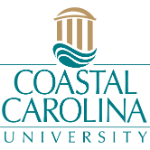Below is a summary of the abstract you submitted. Presenting author(s) is shown in bold.
If any changes need to be made, you can modify the abstract or change the authors.
You can also download a .docx version of this abstract.
If there are any problems, please email Dan at dar78@pitt.edu and he'll take care of them!
This abstract was last modified on March 14, 2022 at 2:17 p.m..

The Science Education Alliance-Phage Hunters Advancing Genomics and Evolutionary Sciences (SEA-PHAGES) program was formed to conduct research on bacteriophages, viruses that infect bacteria. Using the bacterial host Mycobacterium smegmatis, DuncansLeg was isolated from a soil sample found on August 27th, 2021, at Coastal Carolina University. The enriched isolate obtained from an environmental distillate was purified via picking a well-isolated plaque and amplified by making webbed plates in preparation for DNA extraction. This isolate’s DNA was characterized and analyzed through restriction digests. Once we obtained enough lysate we were able to send in the samples to be sequenced. The DNA sequence of DuncansLeg (75,593 base pairs) was subjected to bioinformatic auto-annotation, which placed the phage into subcluster L3. The bioinformatic analyses to further refine the auto-annotated gene starts were conducted using DNA Master, GeneMark, Starterator, and Phamerator. For the assignment of gene functions, pBLAST, HHpred, and synteny data were used in combination. The results of these analyses will be discussed in this presentation of data.
